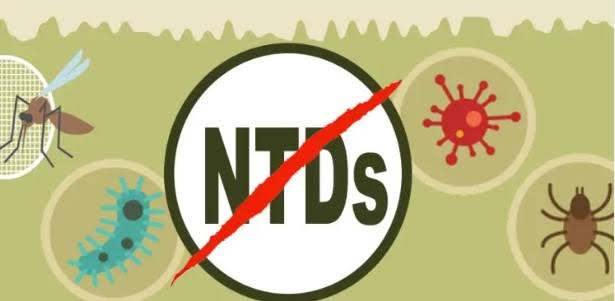With 200 million people in Nigeria at risk of developing 17 Neglected Tropical Diseases (NTDs), the United Nations Children’s Fund (UNICEF) has issued a warning about an impending health crisis in the country.
The organisation emphasised that open defecation is a major cause of many diseases and that it must be addressed immediately.
During a two-day media conference in Lagos, Jane Bevan, the Chief of WASH at UNICEF, underlined that non-transmissible diseases (NTDs) such as schistosomiasis, trachoma, and intestinal worms may be prevented.
She emphasised that millions of people are much more susceptible to these diseases as a result of ongoing open defecation, inadequate hygiene, and a lack of access to clean water.

In Nigeria, 47 million people practise open defecation, whereas only 18% of the population has access to safely managed sanitation facilities, according to the WASH National Routine Mapping (WASHNORM).
The highest rates of open defecation are seen in Ebonyi State, Plateau State, and Zamfara State.
UNICEF Chief of Water, Sanitation and Hygiene (WASH), Jane Bevan, addressed journalists during a two-day media dialogue on “Ending Open Defecation in Nigeria and Elimination of Neglected Tropical Diseases” in Lagos.
She noted that many NTDs are spread through inadequate sanitation and that “unless we all practise safe sanitation and hygiene, there is a risk that we will all get more NTDs.”
According to Bevan, hand washing is maybe the most inexpensive vaccination that all Nigerians, including children, can have that will genuinely help to prevent some of these diseases and save lives.
“We are working hard to ensure more LGAs achieve open defecation-free (ODF) status. We have been able to achieve 126 open defecation-free LGAs in the country,” she continued.
UNICEF and its partners are working harder to put an end to open defecation by 2030 in order to address this epidemic.
This entails building facilities for sanitation, putting hygiene education programs into place, and interacting with people to encourage behavioural change.
Bevan emphasised that handwashing is an easy yet efficient technique to avoid NTDs and that stopping open defecation is vital for reversing the development of these diseases. Monday Johnson, a UNICEF WASH Specialist, shared this attitude in her speech, stressing the high prevalence of NTDs in Nigeria and the part that open defecation plays in their spread.
Mr Monday Johnson, a UNICEF WASH Specialist, stated that Nigeria has the largest NTD burden in Africa, and that open defecation continues to play an important role in the spread.
Bottom Line
The statistic that 47 million Nigerians still practice open defecation, combined with only 18% having access to proper sanitation, reveals significant infrastructural and behavioural challenges.
UNICEF’s focus on addressing this problem by promoting handwashing, ending open defecation, and improving sanitation infrastructure is crucial.
Handwashing, as noted, is one of the simplest and most cost-effective ways to prevent disease transmission, and a push toward creating more open defecation-free (ODF) communities is vital.
















